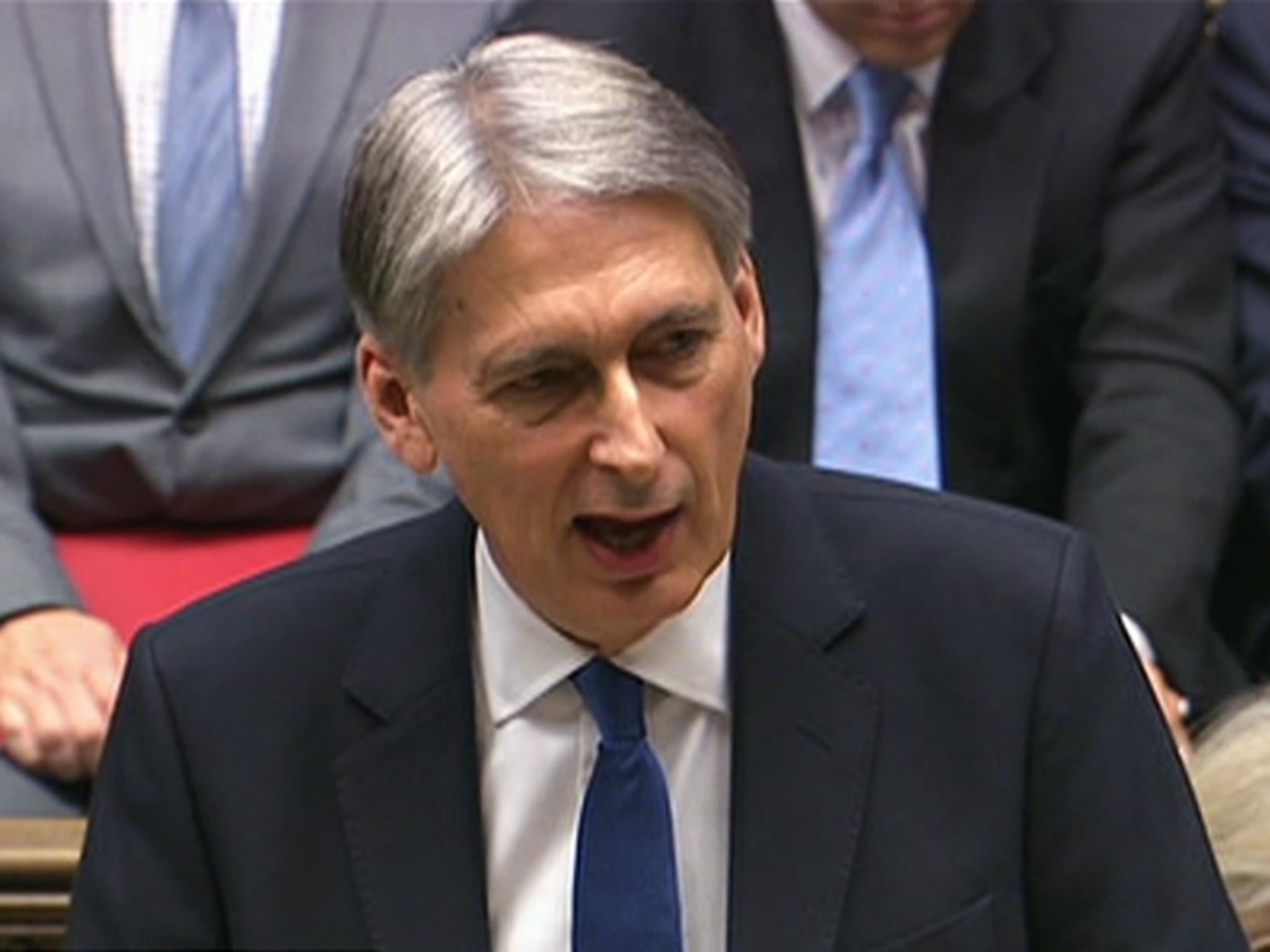Autumn Statement: Chancellor warned he could easily fail to balance the books even in 2025
The Office of Budget Responsibility describes wiping out the Budget deficit in the next parliament - Philip Hammond's fresh target - as 'quite a challenge'

The Chancellor could easily fail to balance the books even by 2025, the Treasury watchdog has warned – a full decade after George Osborne originally promised.
The independent Office of Budget Responsibility (OBR) described Philip Hammond’s fresh target to wipe out the Budget deficit in the next parliament as “quite a challenge”.
It said Mr Hammond could be blown off course by Britain’s stubborn failure to improve economic productivity, which was still the “most important uncertainty”.
But the new fiscal mandate is also threatened by a forecast explosion in the number of pensioners in the early part of the next decade, the OBR said.
The higher pensioner bill – and the threat it poses to the nation’s finances – is certain to increase pressure for the government to abandon the so-called ‘triple lock’ on incomes for the elderly.
Alternatively, OBR chairman Robert Chote said, Mr Hammond could simply need to “borrow more” in the next few years, as Brexit uncertainties continue.
In his Autumn Statement, Mr Hammond confirmed he is no longer seeking a budget surplus in 2019-20, as Mr Osborne – the Chancellor sacked in July - had pledged.
The annual budget deficit is forecast to be £30bn in 2019-20, instead of the £10bn projected in March, a staggering £40 billion swing into the red.
Instead, Mr Hammond is now committed to returning public finances to balance "as soon as practicable" in the next Parliament - which could mean as late as 2025.
Mr Osborne abandoned an identical pledge to balance the books in the last Parliament – and Mr Chote suggested the same fate may await the Chancellor in the next.
Mr Hammond had set aside £27 billion of “headroom” in case the economy slumped further, but continued weak productivity growth would be “sufficient to wipe it out”.
In addition, spending on the elderly would rise by 0.8 per cent of GDP in the next Parliament, as the number of pensioners soared by 9.1 per cent.
On the chances of Mr Hammond wiping out the deficit by 2012, Mr Chote said: “That will be quite a challenge, especially if he needs or decides to borrow more during this Parliament.”
Furthermore, the OBR was forced to admit it had no idea what sort of Brexit Britain will end up with – basing its forecasts purely on the assumption that Britain will leave in April 2019.
Subscribe to Independent Premium to bookmark this article
Want to bookmark your favourite articles and stories to read or reference later? Start your Independent Premium subscription today.

Join our commenting forum
Join thought-provoking conversations, follow other Independent readers and see their replies
Comments